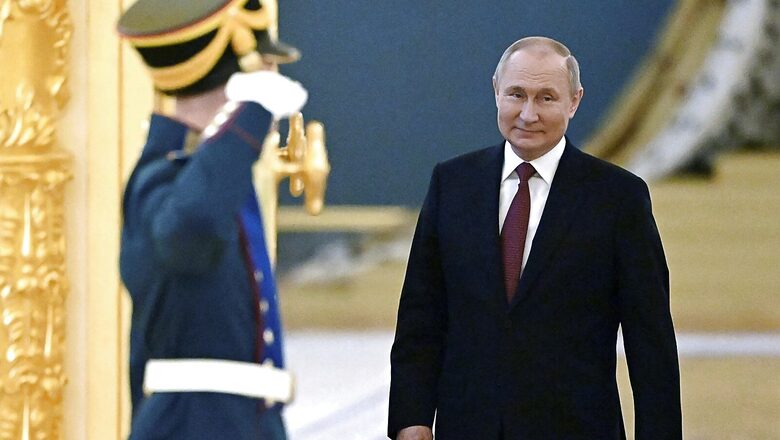
views
The leaders of the Wagner Group, the Russian mercenary group often referred to as President Vladimir Putin’s private army, now have as much political influence in the Kremlin as a minister, a prominent Russian dissident has claimed.
Mikhail Khodorkovsky has said that the Wagner Group had as much access to Putin as the formal government officials, according to a report in The Guardian.
Wagner emerged in 2014 in Ukraine and is suspected by the West of doing the Kremlin’s dirty work in countries such as Syria and the Central African Republic, a charge Russia has always denied. Currently, the group remains active in Ukraine, Syria and some African countries.
It is alleged that the group is engaged in a campaign of terrorism” in Ukraine including murder, rape, the targeting of infrastructure and the planting of explosives around nuclear facilities.
However, the Wagner Group doesn’t exist officially.
As Much Power As Ministers
The shadowy force was founded by Kremlin-linked businessman Yevgeny Prigozhin. Mikhail Khodorkovsky has said that Prigozhin’s influence was on a par with that of other senior ministers in the Kremlin due to his personal relationship with the leader.
“The influence of Mr Prigozhin is approximately equal to the influence of Mr (Sergei Shoigu), minister of defence, or Mr (Sergei) Lavrov, foreign minister,” he said.
Prigozhin, he said, was close enough to Putin that he was even allowed to sign pardons on behalf of the president in order to allow him to recruit criminals from prisons “irrespective of the gravity of the crimes”.
“This is a very high level of influence,” he said. The exiled tycoon said he believed the Wagner group would in the future be used “in Europe”.
And he criticised Western governments for being too slow to recognise the danger it posed. In Africa, he said, Wagner had been engaged in the “preparing and training” of combat groups.
Putin’s ‘Private Army’
Wagner’s men have been active in Ukraine, Syria, Libya, the Central African Republic and Mali in recent years.
Critics see it as a shadow force controlled by Russian President Vladimir Putin, used to promote Russian interests abroad by providing front-line fighters, trainers and advisors.
The UN, Western governments and aid groups have accused it of atrocities against civilians. Recently, reports quoting UK intelligence officials suggested that the military company is recruiting Russian prisoners suffering from infectious diseases including HIV and hepatitis C for the Ukraine war.
Kremlin-linked businessman Yegeny Prigozhin in September acknowledged founding Wagner in 2014, calling its personnel “pillars of our motherland”. But the Russian government has always denied any ties to paramilitary groups.
How it Started?
The Wagner Group had first went into action during Russia’s annexation of Crimea in 2014.
In 2015, it started operating in Syria, fighting alongside pro-government forces and guarding oilfields. It has also been active in Libya since 2016, supporting the forces loyal to General Khalifa Haftar, a BBC report suggested.
Recently, it was invited by the Mali government, in West Africa, to provide security against militant Islamic groups.
Some report says that there are around 5,000 mercenaries in the group operating across the world.
The group’s founder Yevgeny Prigozhin has taken an increasingly prominent role in Russia’s invasion of Ukraine — leading some to question if he might harbour personal political ambitions.
Ukrainian officials say Prigozhin has been sending thousands of soldiers recruited in Russian prisons to the front line, with the promise of a salary and an amnesty.
Read all the Latest News here

















Comments
0 comment